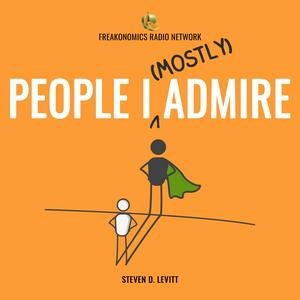153. We’re Not Getting Sicker — We’re Overdiagnosed
Suzanne O'Sullivan is a neurologist who sees many patients with psychosomatic disorders. Their symptoms may be psychological in origin, but their pain is real and physical — and the way we practice medicine, she argues, is making those and other health problems worse. SOURCES:Suzanne O'Sullivan, neurologist and author of The Age of Diagnosis How Our Obsession with Medical Labels Is Making Us Sicker. RESOURCES:The Age of Diagnosis: How Our Obsession with Medical Labels Is Making Us Sicker, by Suzanne O'Sullivan (2025)."Associations of Depression, Anxiety, Worry, Perceived Stress, and Loneliness Prior to Infection With Risk of Post-COVID-19 Conditions," by Siwen Wang, Luwei Quan, Jorge Chavarro, Natalie Slopen, Laura Kubzansky, Karestan Koenen, Jae Hee Kang, Marc G. Weisskopf, Westyn Branch-Elliman, and Andrea Roberts (JAMA Psychiatry, 2022)."How beliefs about coronavirus disease (COVID) influence COVID-like symptoms? – A longitudinal study." by Liron Rozenkrantz, Tobias Kube, Michael H Bernstein, and John D.E. Gabrieli (Health Psychology, 2022)."Risk factors for worsening of somatic symptom burden in a prospective cohort during the COVID-19 pandemic," by Petra Engelmann, Bernd Löwe, Thomas Theo Brehm, Angelika Weigel, Felix Ullrich, Marylyn Addo, Julian Schulze Zur Wiesch, Ansgar Lohse, and Anne Toussaint (Frontier Psychology, 2022).The Sleeping Beauties: And Other Stories of Mystery Illness, by Suzanne O'Sullivan (2021).Brainstorm: Detective Stories from the World of Neurology, by Suzanne O'Sullivan (2018)."The Trauma of Facing Deportation," by Rachel Aviv (The New Yorker, 2017).It's All in Your Head: True Stories of Imaginary Illness, by Suzanne O'Sullivan (2015).The Body Keeps the Score: Brain, Mind, and Body in the Healing of Trauma, by Bessel van der Kolk (2014)."Explaining the Rise in Youth Suicide," by David Cutler, Edward Glaeser,and Karen Norberg (National Bureau of Economic Research, 2001). EXTRAS:Counted Out, documentary (2024)."Bringing Data to Life," by People I (Mostly) Admire (2023)."Adding Ten Healthy Years to Your Life," by People I (Mostly) Admire (2023)."America’s Math Curriculum Doesn’t Add Up," by Freakonomics Radio (2019).Race to Nowhere, documentary (2010).Data Science for Everyone.
